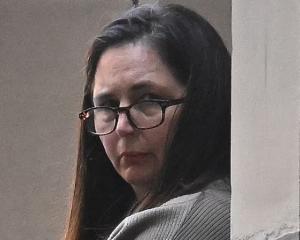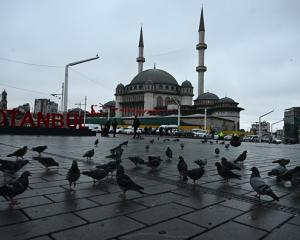
Details were being discussed on the sidelines of the United Nations General Assembly in New York, according to two Lebanese officials, two Western diplomats, a source familiar with the thinking of the armed Lebanese group Hezbollah, a source in Washington and a further person briefed on the talks.
Western officials said the most urgent diplomatic focus for now is to stop the violence in Lebanon, which carries a greater risk of spiralling into a regional war.
At the UN, Cyprus' President Nikos Christodoulides told Reuters on Wednesday that the US and France were trying to hammer out a 21-day interim agreement "to avoid further escalation" between Israel and Hezbollah with a view to opening broader talks that would include efforts to achieve a long-sought ceasefire in Gaza.
But as the effort gathered pace, Israel suggested it could add a ground incursion in Lebanon to its expanding campaign of strikes against Hezbollah. Three Israeli officials told Reuters that, although the US and France were working on ceasefire proposals, no significant progress had yet been made.
A broader deal involving the parallel war in Gaza would likely take more time to resolve.
It would be envisioned to include the eventual release of hostages seized by the Palestinian armed group Hamas in its attack on Israel on October 7 last year, according to a senior Lebanese official, the source familiar with Hezbollah's thinking and the source briefed on talks.
The White House National Security Council did not immediately respond to a request for comment, and the office of Israeli Prime Minister Benjamin Netanyahu declined to comment.
Violence has gripped the region since the October 7 attack by Hamas on communities in southern Israel, in which 1200 people were killed and 250 taken hostage into Gaza.
The attack prompted an Israeli assault on Gaza that has killed more than 41,000 people, according to authorities there.

Israel steps up attacks
The day after Hamas attacked, Iran-backed Hezbollah fired rockets at Israeli military positions across Lebanon's southern border, saying the attacks were in solidarity with Gaza.
Hezbollah has said it will not stop firing at Israel until the attack on Gaza stops, and repeated efforts by Washington to broker a ceasefire in Gaza and secure the hostages' freedom have failed.
Israel has now significantly stepped up its military campaign against Hezbollah in Lebanon, launching hundreds of airstrikes and killing several Hezbollah commanders as well as hundreds of other people, according to Lebanese authorities.
Tens of thousands had already fled from both sides of the border since October, and have been joined this week by around half a million fleeing a feared Israeli ground incursion into southern Lebanon.
A senior Western diplomat told Reuters that the deal sought by the US would include an Israeli announcement of an end to major hostilities in Gaza, in addition to a push for a ceasefire in Lebanon and then a political deal that could see a demarcation of the contentious Israeli-Lebanese land border.
The diplomat said that could provide an "off-ramp" for Hezbollah to avoid a full-scale war with Israel.
Discussions have focused on what would initially be a "pause" in Israel-Hezbollah hostilities followed by a possible resumption of stalled indirect Israel-Hamas negotiations, according to a US source in Washington.
In a sign that diplomacy was accelerating, Lebanon's caretaker prime minister, Najib Mikati, on Monday announced an unexpected trip to New York.
French President Emmanuel Macron said on Wednesday he was dispatching newly-appointed Foreign Minister Jean-Noel Barrot to Lebanon this week as part of efforts to prevent a full-fledged war.
"A diplomatic solution is indeed possible. In recent days, we've worked with our American partners on a temporary ceasefire platform of 21 days to allow for negotiations," Barrot told the 15-member UN Security Council on Wednesday.
The plan would be made public soon, he said.
"We are counting on both parties to accept it without delay, in order to protect civilian populations and allow for diplomatic negotiations to begin."
Barrot said Paris had worked with the parties in defining the parameters for a diplomatic way out of the crisis under UN Security Council Resolution 1701.
"It's a demanding path, but it is a possible path."
Resolution 1701 - adopted following a month-long war between Israel and Hezbollah in 2006 - expanded the mandate of a UN peacekeeping force, allowing it to help the Lebanese army keep parts of the south free of weapons or armed personnel other than those of the Lebanese state. It has sparked friction with Hezbollah, which effectively controls southern Lebanon despite the presence of the Lebanese army. Hezbollah is a heavily armed party and Lebanon's most powerful political force.
US President Joe Biden met with Macron on the margins of the UN General Assembly "to discuss efforts to secure a ceasefire" between Israel and Hezbollah "and prevent a wider war," the White House said.
The conflict in Gaza has been politically costly for Biden - and by extension Vice President Kamala Harris' Democratic presidential campaign - and the violence in Lebanon has redoubled pressure on him to find a diplomatic solution.
Biden said on Wednesday an all-out war was possible in the Middle East, but there was also a chance for a broad settlement.
A person in Washington familiar with the issue said talks were taking place on the sidelines of the General Assembly "with the aim of giving an opportunity for a political settlement" on the Lebanese-Israeli border and reviving a hostage deal on Gaza.
But the second US source cautioned that the obstacles to such a complex diplomatic proposal were hefty - and that implementation would be even harder.
Macron, the only Western leader to hold talks with Iranian President Masoud Pezeshkian on the sidelines of the General Assembly, asked him on Tuesday to exert his influence on Hezbollah.











